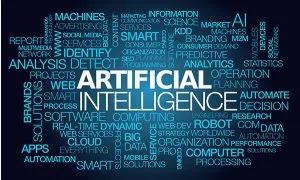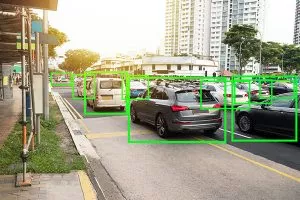The digital landscape has changed in some big ways over the past couple of decades. The first wave brought in the Internet as businesses and consumers came online. A decade later the mobile Internet become the second wave bringing real-time connectivity to billions of people and devices. Today we are amid the third wave and the Internet of Things (IoT), which hinges on physical and digital devices converging.
All of this brings us to the fourth wave ushered, in by Artificial Intelligence (AI).
AI is going to play a major part in many aspects of our lives. AI requires collecting massive amounts of data which means storage will be critical to its success. Let us take look at the various ways AI will have an impact on storage as we plan for the future.  Artificial Intelligence is usually defined as the science of making computers perform operations by modeling human mental functions. AI has been around for decades. Until the last few years, progress has been slow because AI requires mountains of data and computers powerful enough to put all the data in context and respond to it in near real-time.
AI does not attempt to mimic every human skill. But with each iteration, it gets closer to acting like a human. Most AI research is centered around a few skills, which include reasoning, problem-solving, perception, learning and language recognition, and understanding.
Recently, the DeepMind scientists at Google used AI to build a computer program (AlphaGo) which defeated the world champion Go player. Previous versions of AlphaGo trained on thousands of games to learn how to play this popular Chinese game. But the latest version skipped that step entirely and simply learned the rules of the game by playing against itself. This is an example of AI teaching itself how to learn the rules of a complex game, and quickly overtaking the best human player in the world.
As products like DeepMind come closer to modeling human mental functions, we can trust them to make more important decisions. The ability of AI to learn on the fly by training itself is a major breakthrough to that end.
Artificial Intelligence is usually defined as the science of making computers perform operations by modeling human mental functions. AI has been around for decades. Until the last few years, progress has been slow because AI requires mountains of data and computers powerful enough to put all the data in context and respond to it in near real-time.
AI does not attempt to mimic every human skill. But with each iteration, it gets closer to acting like a human. Most AI research is centered around a few skills, which include reasoning, problem-solving, perception, learning and language recognition, and understanding.
Recently, the DeepMind scientists at Google used AI to build a computer program (AlphaGo) which defeated the world champion Go player. Previous versions of AlphaGo trained on thousands of games to learn how to play this popular Chinese game. But the latest version skipped that step entirely and simply learned the rules of the game by playing against itself. This is an example of AI teaching itself how to learn the rules of a complex game, and quickly overtaking the best human player in the world.
As products like DeepMind come closer to modeling human mental functions, we can trust them to make more important decisions. The ability of AI to learn on the fly by training itself is a major breakthrough to that end.  IDC estimates that by 2025, two-thirds of global financial firms will use cognitive data to improve customer experience through product offerings and fraud protection. MasterCard is already using AI to detect fraudulent transactions for millions of customers. Speed is the key to stopping the transaction before it happens, and powerful computers combined with new AI programs are making it happen.
Every financial transaction creates data that a computer can tag. One might make a purchase at the grocery store using a watch and order dinner that evening from a smart speaker. Each of these transactions creates data that is stored for AI to analyze and learn from.
IDC estimates that by 2025, two-thirds of global financial firms will use cognitive data to improve customer experience through product offerings and fraud protection. MasterCard is already using AI to detect fraudulent transactions for millions of customers. Speed is the key to stopping the transaction before it happens, and powerful computers combined with new AI programs are making it happen.
Every financial transaction creates data that a computer can tag. One might make a purchase at the grocery store using a watch and order dinner that evening from a smart speaker. Each of these transactions creates data that is stored for AI to analyze and learn from.  Companies like Uber and Google already have autonomous cars on the road. Uber envisions a world where car ownership is optional, and a trip across town requires only a few taps on a phone.
Google has used autonomous cars to create a 3D map of the world’s roads. How Google plans to monetize all the data they have collected remains a mystery, but in 2016 they purchased an autonomous car development company called Waymo. It appears Google is targeting Uber and Lyft with the purchase.
Creating a car that can safely travel along intercity, rural, and highway roads requires the collection and analysis of massive amounts of data. Cars from Google and Uber contain radar and dozens of sensors they use to “learn” the roads and anticipate driver behavior. Most of this data is saved to the cloud where AI helps each car on the road learn from the others.
Companies like Uber and Google already have autonomous cars on the road. Uber envisions a world where car ownership is optional, and a trip across town requires only a few taps on a phone.
Google has used autonomous cars to create a 3D map of the world’s roads. How Google plans to monetize all the data they have collected remains a mystery, but in 2016 they purchased an autonomous car development company called Waymo. It appears Google is targeting Uber and Lyft with the purchase.
Creating a car that can safely travel along intercity, rural, and highway roads requires the collection and analysis of massive amounts of data. Cars from Google and Uber contain radar and dozens of sensors they use to “learn” the roads and anticipate driver behavior. Most of this data is saved to the cloud where AI helps each car on the road learn from the others.  If you have used Siri on the iPhone or Alexa on Amazon’s Echo, you know how their performance can be haphazard. But they are improving and are about to invade many of the products we use each day. Today we can speak to our smart watch when we want to call or text a friend. It will not be long before our fridge reminds us that we are out of milk when it recognizes we are at the grocery store.
Understanding the many nuances of the human voice requires AI to have access to mountains of data collected from many devices. Amazon’s Alexa continues to improve at a fast rate because so many people use it.
Natural language processing used to require a beefy computer. It is now found on most phones. Processing all that data from the cloud has made this possible. The amount of data is set to explode as billions of devices come online over the next few years.
If you have used Siri on the iPhone or Alexa on Amazon’s Echo, you know how their performance can be haphazard. But they are improving and are about to invade many of the products we use each day. Today we can speak to our smart watch when we want to call or text a friend. It will not be long before our fridge reminds us that we are out of milk when it recognizes we are at the grocery store.
Understanding the many nuances of the human voice requires AI to have access to mountains of data collected from many devices. Amazon’s Alexa continues to improve at a fast rate because so many people use it.
Natural language processing used to require a beefy computer. It is now found on most phones. Processing all that data from the cloud has made this possible. The amount of data is set to explode as billions of devices come online over the next few years.
What is AI?

AI in Finance and Banking

AI in Autonomous Cars

AI in Digital Assistants

Conclusion
After many years of hype, AI is finally beginning to make good on its promises. A lot of the breakthroughs today focus on making our lives easier and safer. The programs utilizing AI to beat the world’s best Go players will be helping combat financial fraud tomorrow. Greater breakthroughs are on the horizon as powerful AI products like Watson from IBM use natural language processing and machine learning to combat disease by creating personalized treatment programs based on data collected from millions of patients dating back a decade or more. Data proliferation will continue to explode as billions of devices come online. AI requires massive amounts of data to analyze and to learn from, and the move to the cloud is finally making this possible. Expect businesses to begin to treat their data as a strategic advantage because many companies are sitting on a gold mineYou May Also Like
- Backup and Disaster Recovery Data Management Data Protection Data Storage
Optimizing Backup and Recovery: A Deep Dive into Data Deduplication and Compression
March 21st, 2024 - Backup and Disaster Recovery Business Continuity Compliance Data Management Data Protection Data Resilience Data Storage Ransomware
Data Retention and Protection in the Age of Targeted Backups
March 5th, 2024 - Compliance Data Management Data Storage
A Four-Pronged Data Classification Strategy for Effective Data Protection, Retention, and Storage Optimization
November 14th, 2023